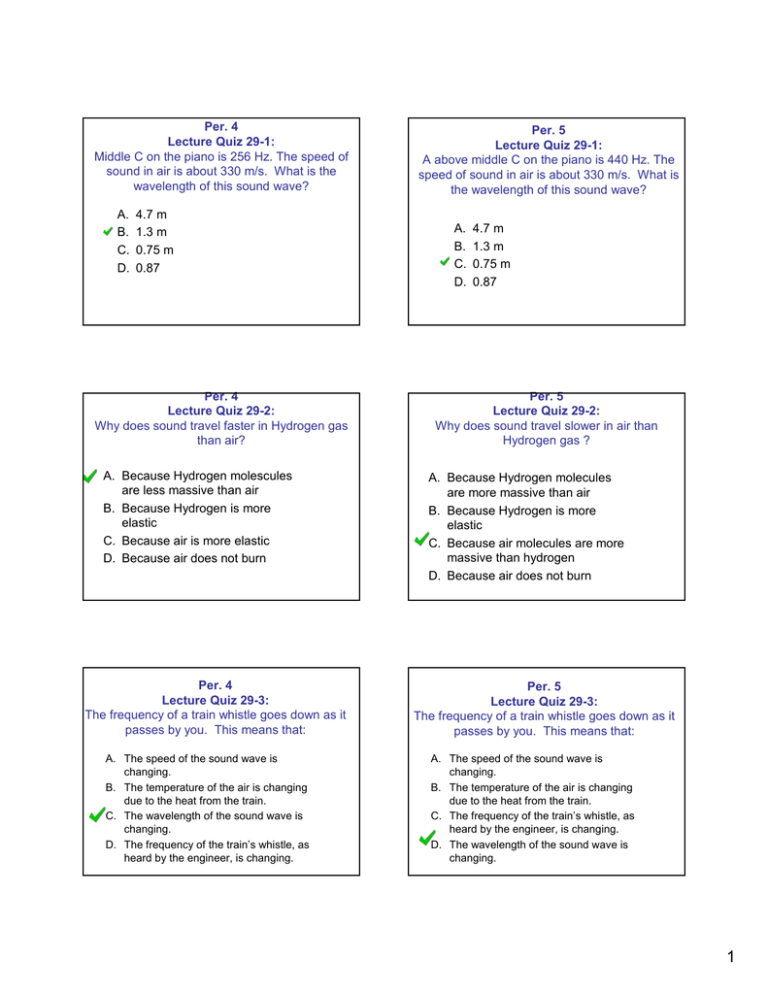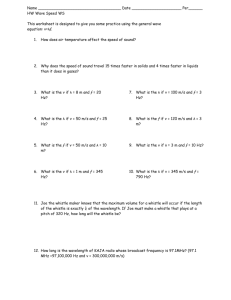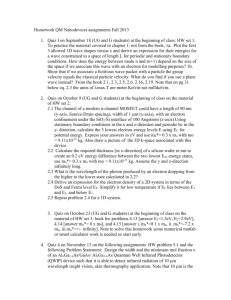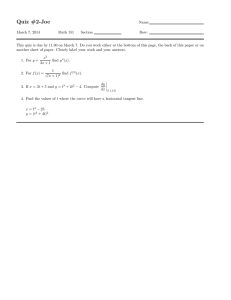Per. 4 Per. 5 Lecture Quiz 29-1:
advertisement

Per. 4 Lecture Quiz 29-1: Middle C on the piano is 256 Hz. The speed of sound in air is about 330 m/s. What is the wavelength of this sound wave? A. B. C. D. 4.7 m 1.3 m 0.75 m 0.87 Per. 4 Lecture Quiz 29-2: Why does sound travel faster in Hydrogen gas than air? A. Because Hydrogen molescules are less massive than air B. Because Hydrogen is more elastic C. Because air is more elastic D. Because air does not burn Per. 4 Lecture Quiz 29-3: The frequency of a train whistle goes down as it passes by you. This means that: A. The speed of the sound wave is changing. B. The temperature of the air is changing due to the heat from the train. C. The wavelength of the sound wave is changing. D. The frequency of the train’s whistle, as heard by the engineer, is changing. Per. 5 Lecture Quiz 29-1: A above middle C on the piano is 440 Hz. The speed of sound in air is about 330 m/s. What is the wavelength of this sound wave? A. B. C. D. 4.7 m 1.3 m 0.75 m 0.87 Per. 5 Lecture Quiz 29-2: Why does sound travel slower in air than Hydrogen gas ? A. Because Hydrogen molecules are more massive than air B. Because Hydrogen is more elastic C. Because air molecules are more massive than hydrogen D. Because air does not burn Per. 5 Lecture Quiz 29-3: The frequency of a train whistle goes down as it passes by you. This means that: A. The speed of the sound wave is changing. B. The temperature of the air is changing due to the heat from the train. C. The frequency of the train’s whistle, as heard by the engineer, is changing. D. The wavelength of the sound wave is changing. 1





